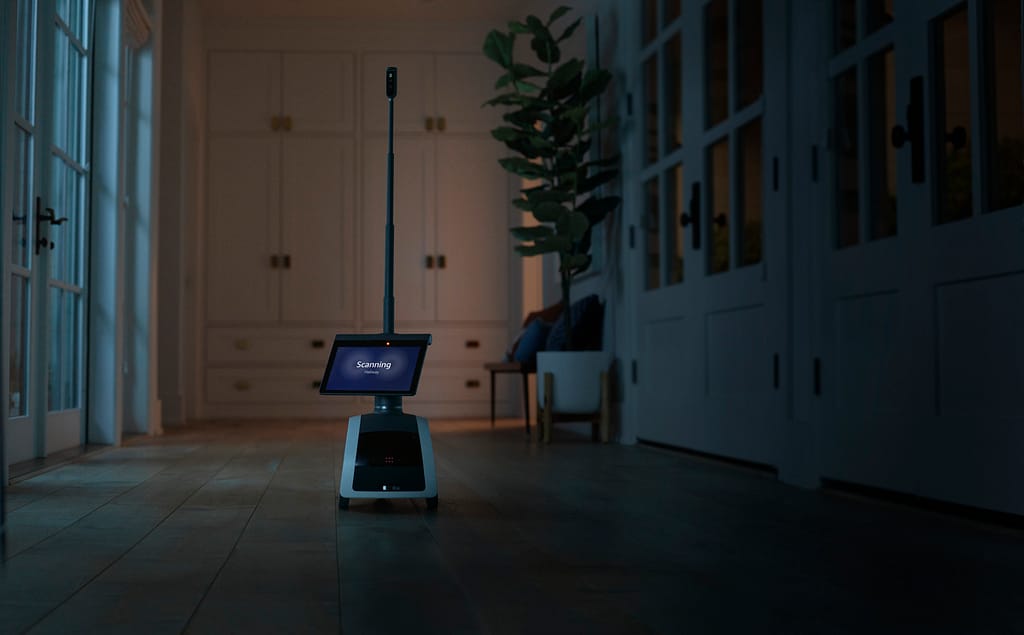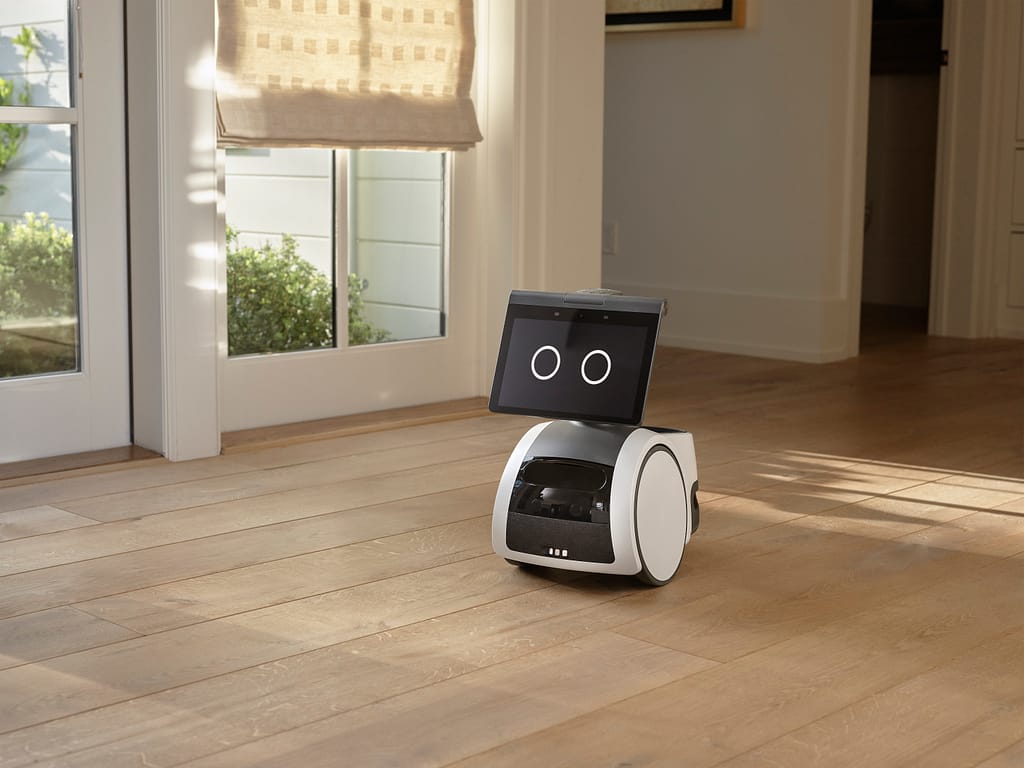Dystopian fiction just became even harder to write today, as reality upped its game considerably with Amazon’s announcement of the Astro domestic robot…
This 20lb, two-foot-tall domestic surveillance droid is designed to offer its owners “peace of mind” – ‘in exchange for you handing over every last scrap of you and your family’s privacy forever’, the techno skeptics scream.

Personally, this doesn’t freak me out as much as some insist it should. To me, Astro is, in essence, no different to something like Alexa. It’s also true that all of these devices at least seek permission before harvesting your data and surveilling your movements… and you can set the parameters of its movement, etc. Your enter the contract willingly, it’s up to you whether you buy into it. As ever, the price of entry is to trade privacy for convenience, the mantra of the modern tech age.
If you haven’t already, please enjoy the company’s hyperreal, future-utopian Bodysnatchers-esque product video.

But it’s surely significant that this device is being marketed as a ‘Household Robot For Home Monitoring’, designed to protect your home while you’re away. Far more than a mere dumb automated vacuum cleaner or a wearable fitness tracker, there’s something about a mass-market domestic robot with a periscope on its head and a humanoid format that screams ‘new genre of product’. Something about it says ‘the age of the everyday robot is finally upon us’.
Or maybe it’s just the personification that makes me think that. Apparently, out of a survey of the top 100 robots people love, Amazon’s video tells us, only five don’t have eyes. Astro’s eyes blink, grow and shrink to convey emotional response… already making them more advanced than the replicants that underwent the Voight-Kampff test in Blade Runner.
A new era of domestic harmony
“Did you turn the hair straighteners off, for the thousandth time?”
“Did our £1,000 robot just fall down the stairs and smash into a million pieces?”
“Is nan on the rampage again?”
“Who is that man in the living room?”
All these questions and more will now be answered by your data-gobbling domestic helper. Just a side note, but much is being made here about this autonomous device’s ability to investigate and follow any strangers in your home. How common a problem is this, that we need a domestic robot rather than, say, a simple CCTV camera or household alarm system? How many households are crawling with strangers to the extent that we need to purchase a £1,000 humanoid robot to keep tabs on them?
It auto-plays music, checks whether the stove is left on, delivers drinks… perhaps in a few years’ time, when new models have rendered it obsolete, Astros everywhere will enjoy a new lease of life as robot helpers for housebound wreckheads, who need a bit of automated assistance mid-bender?

And the notion of countering real domestic intruders – ie, thieves – with a robot deterrent is surely not going to end here, with a cutesy WALL-E guy amiably following any home invaders around passively monitoring them as they steal. How long until the Astro line begins to resemble the Cyberdyne Systems T-800, patrolling the kitchen with a handheld rocket launcher? It’ll make the trip downstairs for a midnight bowl of cereal more eventful, at least.
Excellent links to more about Astro

For a juxtaposition of how the world has changed, let’s remember the innocence of the 1979 forerunner to this thing, Big Trak: both deliver snacks and treats, but only one employs facial recognition and protects the home from potential invasion. The other seemed more bothered about harassing the family labrador.
Vice has some leaked documents from Astro’s development cycle.
It’s also released a 20-minute podcast on the implications of the Astro that’s a thought-provoking listen.
Meanwhile, Slate has taken an entertaining look at Astro’s forebears (or fore-dogs).
